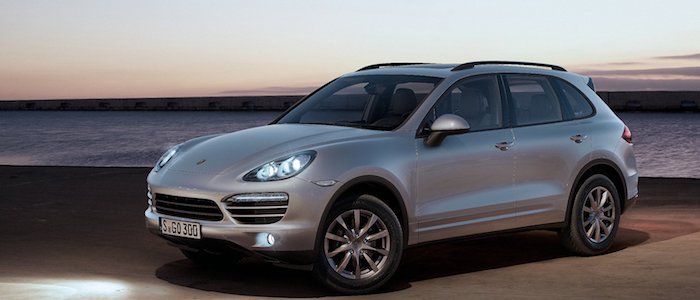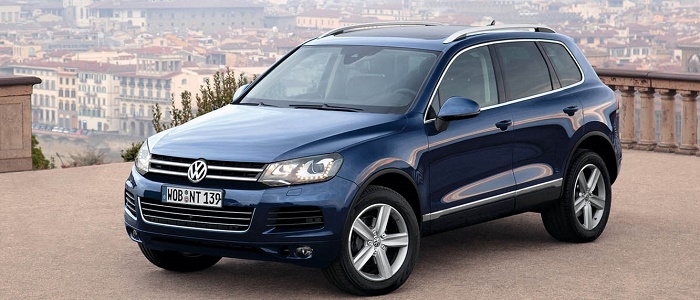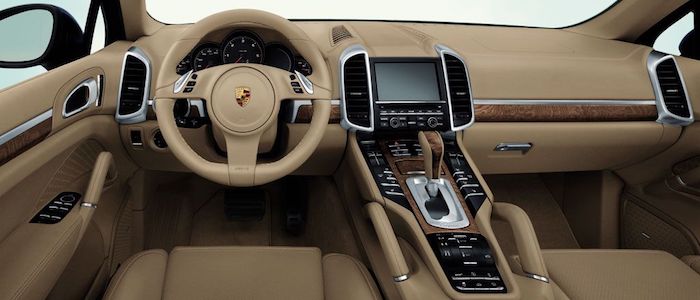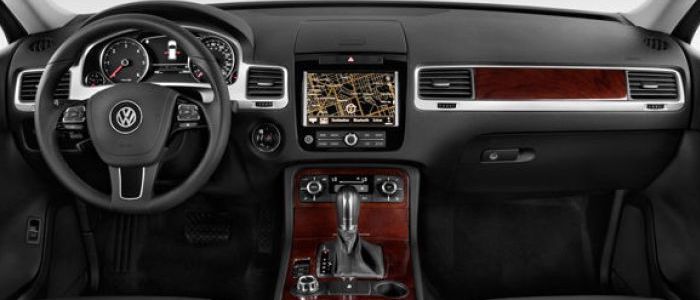Compare two cars
Compare any two cars and get our Virtual Adviser™ opinion
Marketing
Dimensons & Outlines
Engine
Performance (manual gearbox)
Performance (automatic gearbox)
Expenses
Virtual Adviser's™ opinion
Well, these are two pretty similar cars we have here! It's only details that could potentially make the difference. Considering they both belong to the suv segment and utilize the same 5-door suv body style and the 4 x 4 wheel drive system, it all comes up to the specific petrol engine choice they offer. The first one has a Porsche-engineered powertrain under the hood, a 8-cylinder, 32-valves 400hp unit, while the other one gets its power and torque from a 6-cylinder, 24-valves 280hp engine designed by Volkswagen.
SafetyUnfortunatelly, neither of the two vehicles was submitted to the European New Car Assessment Programme (Euro NCAP) testing. This makes it virtually impossible for me to pick one over the other and I'm generally against buying such cars as the safety should really always come first. That aside, let's consider some other aspects which affect safety. Both vehicles belong to the suv segment, which is generally a very good thing safety-wise, but it doesn't do much to help us decide between the two.
ReliabilityReliability is not the best thing to consider on the make level, but it is worth mentioning that Volkswagen as a brand displays somewhat better results, all the models observed together. These are the official statistics, while our visitors describe reliability of Porsche with an average rating of 3.7, and models under the Volkswagen badge with 4.2 out of 5. Unfortunatelly, I don't have enough insight that would allow me to comment in more details on the specific models level. We should definitely mention that owners of cars with the same powertrain as Cayenne rank it on average as 3.0, while the one under the competitor's bonnet gets 5.0 out of 5.
Performance & Fuel economyPorsche is undoubtly more agile, reaching 100km/h in 1.9 seconds less than its competitor. In addition to that it accelerates all the way to 258 kilometers per hour, 31km/h more than the other car. When it comes to fuel economy things look pretty much the same for both cars, averaging around 10.2 liters of fuel per 100 kilometers (28 mpg), in combined cycle.
Verdict
Volkswagen is apparently more reliable, not too much, but just enough. The most important thing when deciding between any two vehicles should always be safety, both passive and active. In this case though, it seems that both cars show similar levels of passenger protection all together, so that won't break a tie. But one thing that actually could is the performance, with Porsche being considerably quicker, thus putting more smile on driver's face. It does come at a cost though, and that's the fuel consumption... It's really tough to make a final decision here, but if I'd need to, I'd say Volkswagen. Anyway, that's the most objective conclusion I could've came up with and it's based solely on the information found on this website. Aspects such as design, practicality, brand value and driving experience are there for you to measure them out. I suggest you spend two more minutes in order to find out which car, based on your needs and budget, would be picked by the virtual adviser™, among thousands of similar, yet so different vehicles.
































